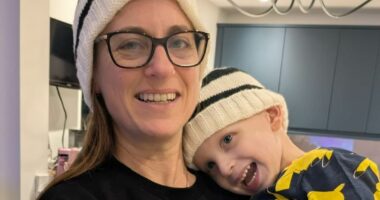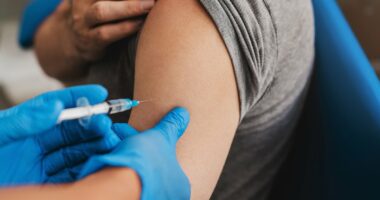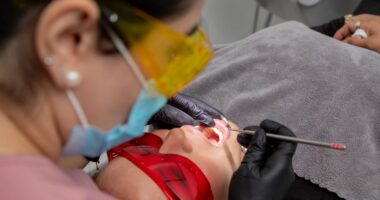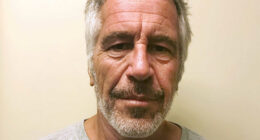Share this @internewscast.com
According to Bipolar UK, approximately one million individuals in the United Kingdom live with bipolar disorder, yet 56% of them remain undiagnosed. This gap in diagnosis and the lack of tailored support can endanger their employment, family relationships, and personal well-being.
On average, it takes nine and a half years for individuals to be accurately diagnosed with bipolar disorder after initially seeking medical assistance. Misdiagnoses are common, leading to inappropriate treatments that may worsen the condition. In response, the charity has launched the ‘Maybe It’s Bipolar’ campaign, emphasizing four significant symptoms of hypomania. They encourage people experiencing these symptoms or those who know someone who might be, to take their online assessment.
The first symptom highlighted is sleep disturbances. The charity poses the question, “Have you ever experienced times when your brain is too active to allow sleep?” During hypomanic episodes, individuals may find themselves unable to rest properly.
Impulsive spending, often described as uncontrollable shopping sprees, is another sign. Likewise, periods of irritability or intense anger can signal the condition.
Additionally, hypersexual behavior, characterized by an unusual or excessive focus on sexual activities, is a prevalent yet often misunderstood symptom among those with bipolar disorder.
Simon Kitchen, CEO of Bipolar UK, emphasized, “Early diagnosis and access to specialist treatment significantly improve long-term outcomes. However, in the UK, it takes an average of nine and a half years from the initial report of symptoms to receive a proper diagnosis.”
“During this lost decade, people living with undiagnosed bipolar are at risk of losing their jobs, relationships, homes and lives. By getting people who are struggling with their mental health to consider that ‘maybe it’s bipolar?’ we are supporting them to take the first step on the journey to diagnosis so they can get the treatment and support they need to live well.”
The charity has also launched its short film ‘Maybe It’s Bipolar’, produced by ambassadors Rosie Viva and April Kelley, both of whom have personal experience of bipolar.
April said: “After over a decade of misdiagnoses of depression and anxiety, and incorrect medication that actually exacerbated my bipolar symptoms – making me hypomanic and leading to many questionable life choices – I finally received the right diagnosis.
“During that time, I unintentionally frightened loved ones, sometimes I can remember those moments, but other times the depression was so severe it resulted in memory loss. I genuinely believe my diagnosis saved my life.”
Rosie revealed: “At the age of 22, my depression and anxiety worsened during a very busy period at work. I started experiencing vertigo, paranoia, anxiety and suicidal thoughts. I couldn’t work anymore, so I went to the doctors. That year, I trialled six or seven antidepressants – everything seemed to make things worse, and I feared I would never get better or return to myself.
“Then my boyfriend broke up with me. This triggered a manic high that progressed into psychosis. While the years that followed were extremely challenging, looking back, my diagnosis ultimately saved my life.”















